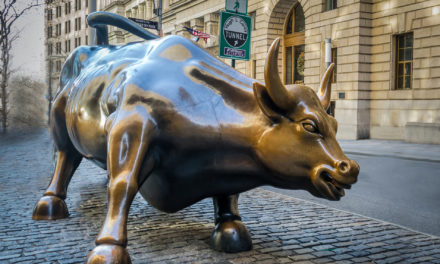
“When we own portions of outstanding businesses with outstanding managements, our favorite holding period is forever.”
— Warren Buffett
The wisdom of Warren Buffett reflects a value-based philosophy about investing that says investors are buying shares in a business, and encourages strategic thinking about investment time horizon. Before placing a buy order for a stock, a great question we can ask is whether we would still be comfortable making the investment if we couldn’t sell it for many years?
A “buy-and-hold” approach may call for a time horizon that spans a long period of time — maybe even lasting for a two-decade holding period. Suppose such a “buy-and-hold” investor had looked into buying shares of Verizon Communications Inc (NYSE: VZ) back in 2002. Let’s take a look at how such an investment would have worked out for that buy-and-hold investor:
| Start date: | 04/22/2002 |
|
|||
| End date: | 04/20/2022 | ||||
| Start price/share: | $35.97 | ||||
| End price/share: | $54.41 | ||||
| Starting shares: | 278.01 | ||||
| Ending shares: | 711.31 | ||||
| Dividends reinvested/share: | $39.21 | ||||
| Total return: | 287.03% | ||||
| Average annual return: | 7.00% | ||||
| Starting investment: | $10,000.00 | ||||
| Ending investment: | $38,718.37 | ||||
As shown above, the two-decade investment result worked out well, with an annualized rate of return of 7.00%. This would have turned a $10K investment made 20 years ago into $38,718.37 today (as of 04/20/2022). On a total return basis, that’s a result of 287.03% (something to think about: how might VZ shares perform over the next 20 years?). [These numbers were computed with the Dividend Channel DRIP Returns Calculator.]
Notice that Verizon Communications Inc paid investors a total of $39.21/share in dividends over the 20 holding period, marking a second component of the total return beyond share price change alone. Much like watering a tree, reinvesting dividends can help an investment to grow over time — for the above calculations we assume dividend reinvestment (and for this exercise the closing price on ex-date is used for the reinvestment of a given dividend).
Based upon the most recent annualized dividend rate of 2.56/share, we calculate that VZ has a current yield of approximately 4.71%. Another interesting datapoint we can examine is ‘yield on cost’ — in other words, we can express the current annualized dividend of 2.56 against the original $35.97/share purchase price. This works out to a yield on cost of 13.09%.
One more piece of investment wisdom to leave you with:
“Compound interest is the eighth wonder of the world. He who understands it, earns it; he who doesn’t, pays it.” — Albert Einstein




